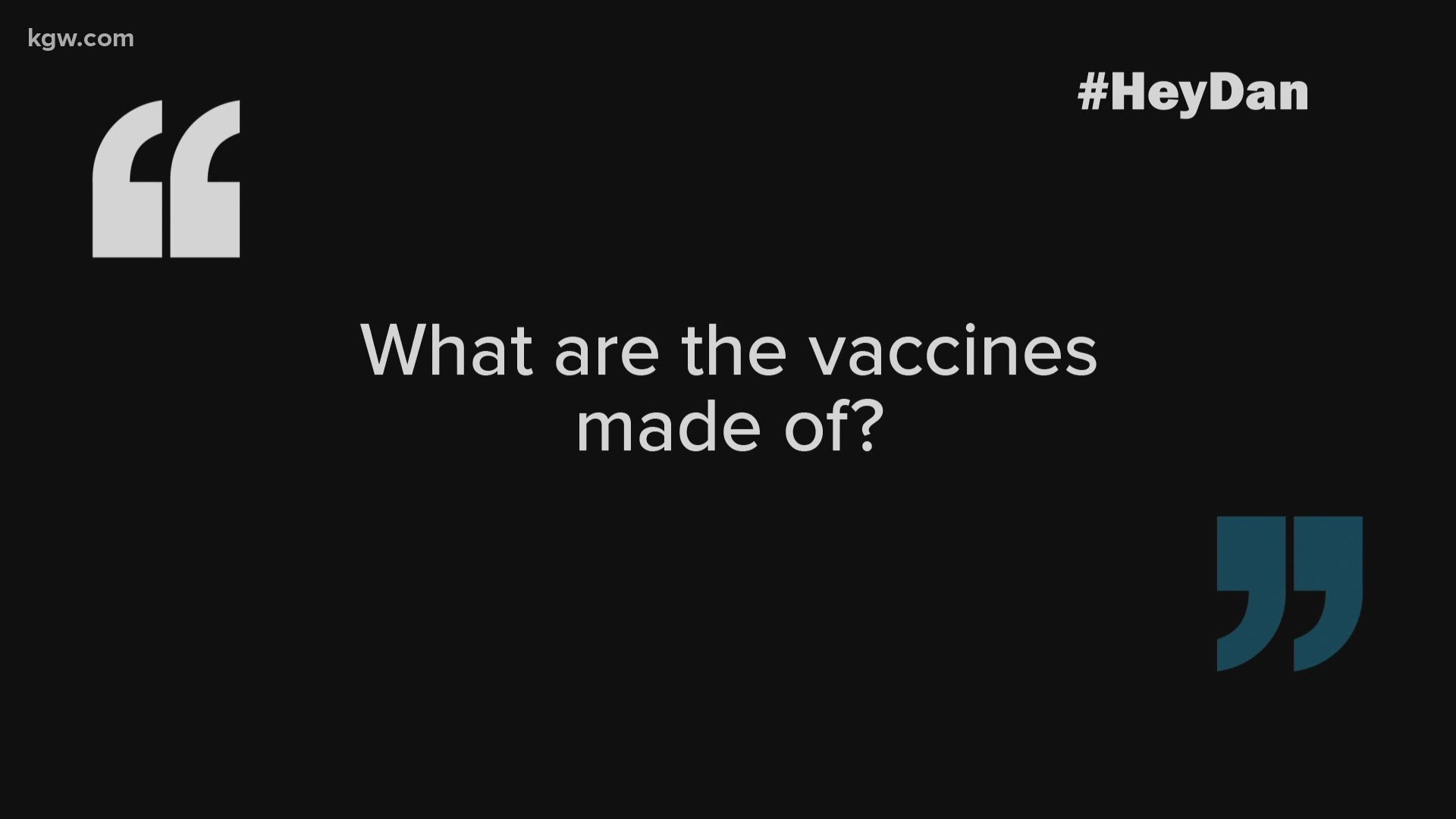PORTLAND, Ore. — After receiving emergency use authorization, the Pfizer-BioNTech COVID-19 vaccine is now being distributed to healthcare workers across the U.S.
It is normal to have flu-like side effects after getting the vaccine, but what about allergic reactions?
KGW set out to VERIFY: Can people with severe allergies get the COVID-19 vaccine?
On Sunday, the Centers for Disease Control and Prevention (CDC) announced that people who have experienced severe reactions to prior vaccines can still get the COVID-19 vaccine.
The CDC guidance states that these people “may still receive vaccination, but they should be counseled about the unknown risks of developing a severe allergic reaction.”
All vaccine providers should be able to provide medical treatment in the case of allergic reactions and must monitor patients with a history of anaphylactic reactions for 30 minutes after inoculation. Providers must monitor all other patients for 15 minutes after inoculation.
Dr. Anthony Fauci, director of the National Institute of Allergy and Infectious Diseases, told CNBC on Wednesday, "if you have a history of a severe allergic reaction, you should either not take this vaccine, or if you do take it, take it in the context of a place where if you do develop an allergic reaction, it could be readily and effectively treated."
This recommendation differs from that of British authorities, who said vaccines should not be given to people who have had an anaphylactic reaction to a food, medicine or vaccine.
Anaphylactic reactions can be life-threatening, with impaired breathing and drops in blood pressure occurring shortly after exposure to a food or medicine.
Since the U.K. became the first Western nation to authorize use of Pfizer’s COVID-19 vaccine, it has been reported that two health care workers who received the vaccine suffered from serious allergic reactions. The workers recovered, but the cause of these reactions has yet to be determined.
On Tuesday, in Alaska, a health care worker had a similar reaction to the vaccine, according to New York Times reporting. The middle-aged worker has no history of allergies, but experienced a rash on her face and torso, shortness of breath and an elevated heart rate within 10 minutes of receiving the vaccine.
After a stay in an intensive care unit, the woman is recovering and set to be discharged later on Wednesday.
These allergic reactions may heighten concerns about potential side effects, but federal officials still say the appropriate precautions are in place. Researchers are working to determine what component of the vaccine caused these more severe reactions.
It is important to note that thousands of people have successfully been vaccinated thus far, and the risk of a severe allergic reaction is said to be extremely low.
ER physician and former Baltimore City Health Commissioner Leana Wen wrote in a tweet, “Remember that we can treat allergic reactions. It is much harder to treat consequences of Covid-19.”
Severe allergic reactions to the Pfizer vaccines were extremely rare in the trials, though people with a history of anaphylaxis were excluded from these trials.
Unlike some vaccines, both the Pfizer-BioNTech and Moderna vaccines do not have preservatives or egg products, which have triggered allergic reactions from other types of vaccines in the past.
The CDC says that people with allergies to any food, latex, pollen or other substances do not need to take special precautions and are recommended to receive the Pfizer vaccine.
In the U.S., regulators are only recommending against vaccination for people with a known allergy to a specific ingredient in the vaccine, like a lipid nanoparticle known as polyethylene glycol — found in both the Pfizer-BioNTech and Moderna vaccines.
Any adverse event from the vaccine can be reported here.


